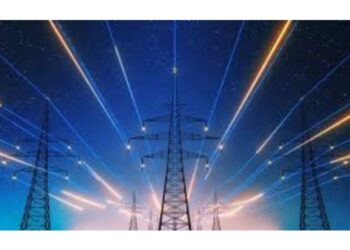The monsoon season brings much-needed respite from the sweltering summer heat, but it also introduces hesitation among homeowners and businesses planning outdoor installations, particularly solar energy systems. The idea of installing solar panels during the rainy season may seem counterintuitive. However, data and experience show that monsoons are not a barrier to going solar—in fact, they may be the perfect time to make the switch.
Let’s unpack some common myths about solar installation during monsoons and examine why the long-term benefits far outweigh any seasonal concerns.
Myth 1: Solar Panels Don’t Work During Monsoons
This is the most widespread misconception. People often believe that solar panels stop functioning in cloudy or rainy weather. In reality, modern photovoltaic (PV) panels are designed to generate electricity from diffused daylight, not just direct sunlight. Even under overcast conditions, panels can operate at 10–25% efficiency, depending on cloud cover.
According to the MNRE (Ministry of New and Renewable Energy), India receives an average of 4–7 kWh per square meter per day of solar radiation across most of the country, even during monsoon months. For perspective, Germany, a solar powerhouse with over 70 GW of installed solar capacity, receives far less sunshine annually than most Indian states but continues to generate solar power consistently year-round.
Myth 2: Installation Is Not Possible in Rainy Weather
While rain can lead to temporary delays, most experienced solar EPC (engineering, procurement, and construction) companies are well-prepared for monsoon installations. They monitor weather forecasts, plan tasks during dry spells, and follow rigorous safety and waterproofing protocols.
According to Crisil, a renewable energy consultancy, only 20–25% of solar installations in India currently take place during the monsoon season. The opposite should be true. This off-season window offers potential benefits like shorter installation lead times, lower booking backlogs, and, in some cases, off-season discounts.
Proper electrical insulation, weather-resistant components, and IP-rated (Ingress Protection) enclosures ensure that the system remains safe during installation and afterwards.
Myth 3: Rainwater and Storms Can Damage the Panels
Quality solar panels are built to last. Certified panels are rigorously tested to withstand extreme weather conditions, including heavy rain, strong winds up to 150 km/h, and hail. Products meeting IEC 61215 and IEC 61730 certifications are widely deployed across diverse terrains—from coastal zones to high-altitude regions.
Interestingly, rain can improve panel efficiency by naturally cleaning off dust, bird droppings, and other debris. A 2020 study published in Solar Energy found that rainwater cleaning can improve panel output by up to 15% post-rainfall in heavily polluted regions.
Proper mounting with the right tilt ensures efficient water drainage, reducing stress on the frame and avoiding structural issues.
Why Monsoon Installations Make Long-Term Sense
1. Financial Saving
Electricity prices in India have risen by 5–6% annually over the last decade. Even during monsoon months, your solar system continues to reduce reliance on the grid.
2. Availing Subsidies for Housing Societies
₹18,000/- per kW for common facilities, including EV charging, up to 500 kW capacity (@3 kW per house), with the upper limit being inclusive of individual rooftop plants installed by individual residents in the GHS/RWA
3. Beat the Seasonal Rush
The period from October to February sees peak demand for solar installations. Booking your system during monsoon not only avoids scheduling delays but also ensures you are ready to generate more power as winter sunlight intensity improves.
4. Environmentally Responsible Choice
Every kilowatt-hour (kWh) of solar energy can offset nearly 31 tonnes of carbon emissions, equivalent to planting around 49 trees.
Conclusion
Going solar during the monsoon season might sound unconventional, but it’s far from impractical. With reliable technology, trained professionals, and proper planning, there’s no reason to delay your solar journey. Monsoons are not an obstacle—they’re an opportunity.
Don’t let seasonal myths cloud your decision. The long-term savings, energy independence, and environmental impact make solar power a smart investment rain or shine.












